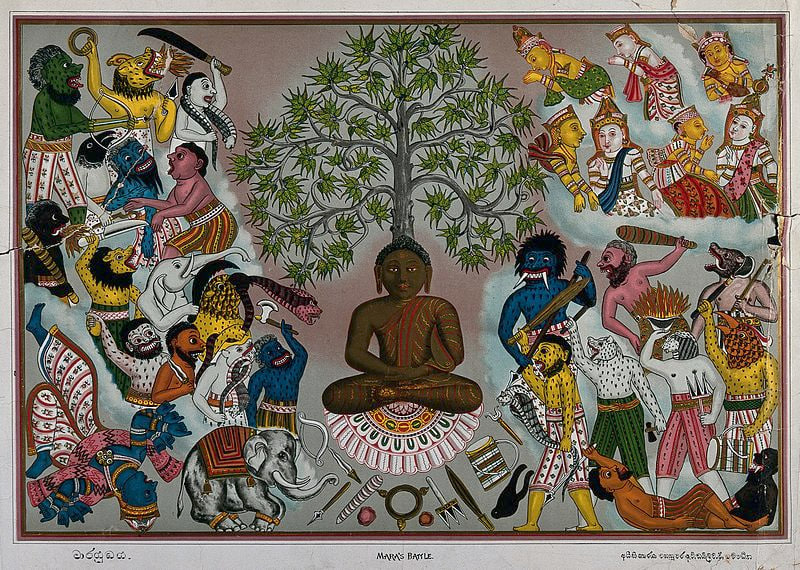Mara
Mara, renowned and widely acknowledged within Buddhism, is frequently depicted as an evil deity or demon, symbolizing the influences of illusion, desire, attachment, and delusion. He personifies the impediments and diversions that obstruct sentient beings from reaching enlightenment and breaking free from the cycle of samsara.
One prominently recognized occurrence involving Mara is the narrative of the "temptation of Buddha," unfolding amid Siddhartha Gautama's meditation beneath the Bodhi tree. As Siddhartha stood on the cusp of enlightenment, Mara endeavored to hinder his advancement by introducing an array of temptations and illusions to divert him from his chosen path.
In the face of Mara's endeavors, Siddhartha maintained an unwavering composure, gently touching the earth with his right hand as a gesture of connection and testimony. Subsequently, the earth goddess materialized, attesting to Siddhartha's myriad virtuous actions across his previous lifetimes. This unwavering determination prompted Mara and his forces to retreat, paving the way for Siddhartha's enlightenment and transformation into the revered Buddha.
Mara's narrative is imbued with profound symbolism, portraying the internal and external hurdles encountered by individuals traversing the journey to enlightenment. The enticements posed by Mara epitomize a spectrum of desires and diversions that engender suffering and impede the realization of spiritual awakening.
Mara's importance transcends being a mere demon archetype; he encapsulates the intricate interplay involving human psychology, desires, and the quest for spiritual emancipation. His tale serves as a poignant reflection of the trials and allurements individuals must face and conquer while pursuing awakening within Buddhist practice.











